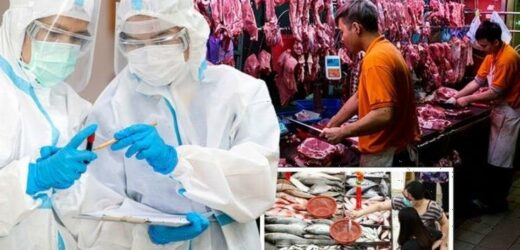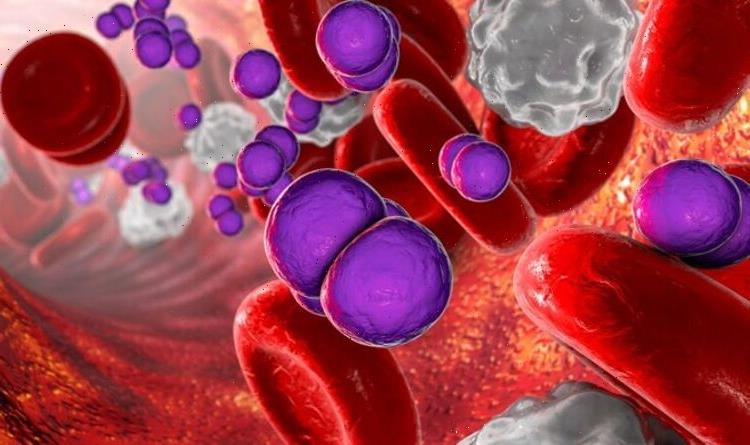China: Expert discusses Wuhan lab leak theory
We use your sign-up to provide content in ways you’ve consented to and to improve our understanding of you. This may include adverts from us and 3rd parties based on our understanding. You can unsubscribe at any time. More info
An international team of researchers launched a project to identify infectious diseases among mammals that are sold at wildlife markets across Laos in an effort to identify suspects for the next global pandemic. The scientists were reported as being alarmed by the “ubiquity” or the widespread prevalence of potentially world-threatening bacterial pathogens, like the one that started the COVID-19 pandemic.
Wet markets are infamous for keeping wild animals in cramped, often unhygienic conditions that serve as a perfect breeding ground for cross-contamination of diseases, some of which could jump from animals to humans.
Fears of wildlife markets triggering a pandemic began with Covid-19, with researchers believing that the virus may have originated in seafood “wet markets” in Wuhan, China.
Last month, a team of scientists concluded that the virus most likely jumped from a caged wild animal into people at the Huanan Seafood Wholesale Market, where the outbreak first began.
The paper said: “Geographical clustering of the earliest known COVID-19 cases and the proximity of positive environmental samples to live-animal vendors suggest that the Huanan Seafood Wholesale Market in Wuhan was the site of origin of the COVID-19 pandemic.”


Scientists who were not involved with the study have described the paper as a “blow to the lab leak theory” and described the data as “very convincing”.
The current group of researchers have collected over 700 wildlife samples, predominantly squirrels, from nine wildlife trading hotspots and two roadside stalls in Laos.
They found that the presence of a bacteria known as Leptospira, which caused Leptospirosis in both humans and animals, is one of the main causes of fever in rural Laos.
The scientists detected the infection in over a fifth of the animals they tested.

According to the NHS, symptoms of leptospirosis could include yellow skin and eyes (jaundice), a rash, difficulty peeing, chest pain, shortness of breath and even coughing up blood.
The research team, led by Dr Praksa Nawtaisong and Dr Matthew Robinson concluded: “These findings suggest a substantial risk for exposure through handling and consumption of wild animal meat.
However, they warned that their study was limited, describing it as “a small snapshot in time and locality”.
They also stressed in order to understand such pathogen and their relationship to wet markets, “surveillance should be done over a longer period of time over a wide geographical area.”
DON’T MISS:
Putin’s doomsday ‘Dead Hand’ device fires 30 nukes at once [ANALYSIS]
Xi bolsters terrifying nuclear arsenal as China scrambles to deter US [REVEAL]
New ‘lethal’ weapons Britain will send Ukraine to obliterate Russia [INSIGHT]


Even as the world vaccinates itself against Covid-19, anthropology and wildlife trade experts like Prof. Vincent Nijman warn that humanity could be at risk again.
He said: “I think the best we can hope for is luck.
“And then you also know that at some point you will run out of luck, it will happen again.
“It is not a matter of if, it is a matter of when.”
Source: Read Full Article


